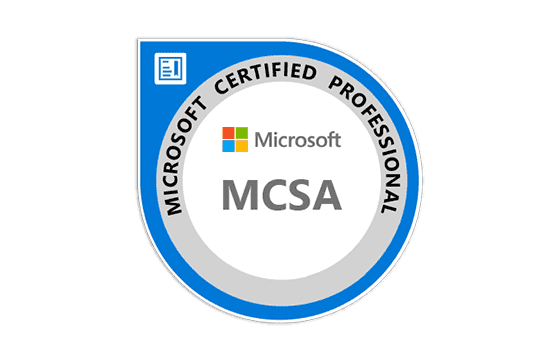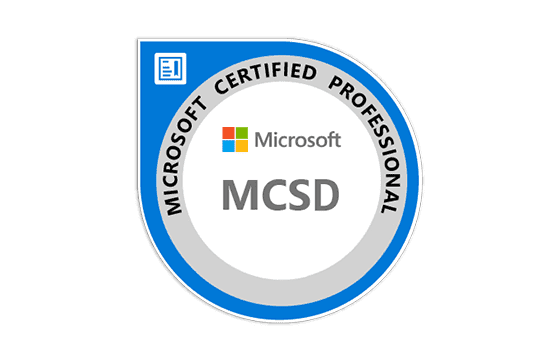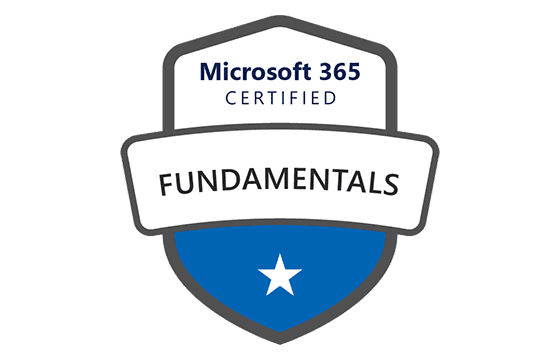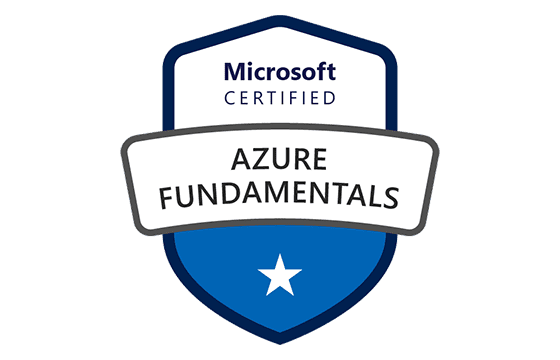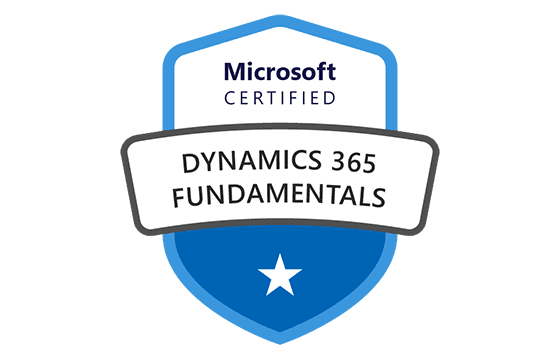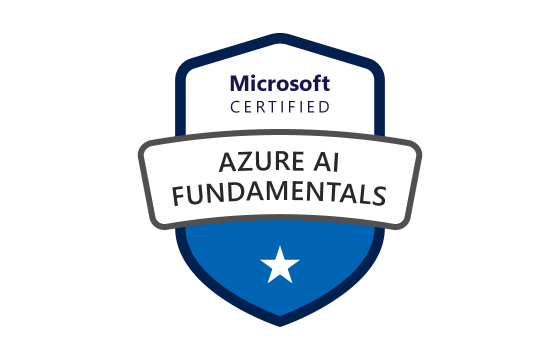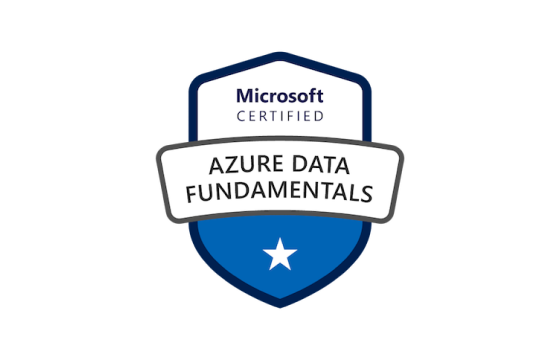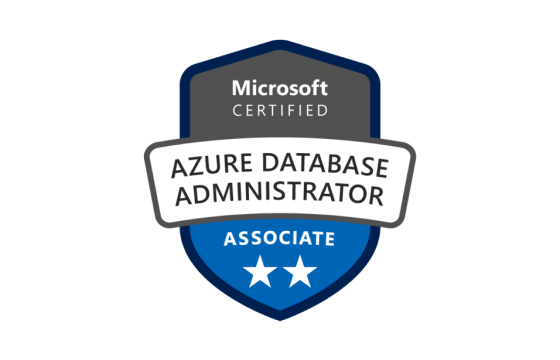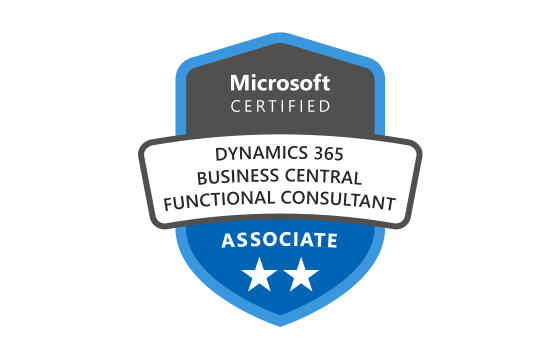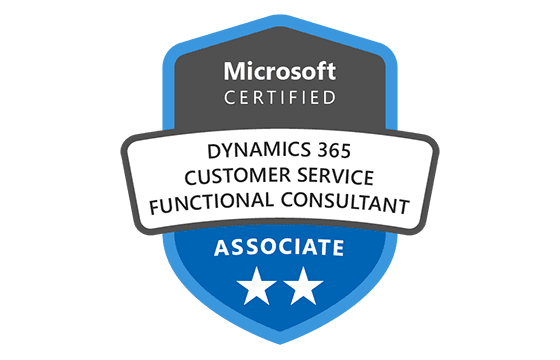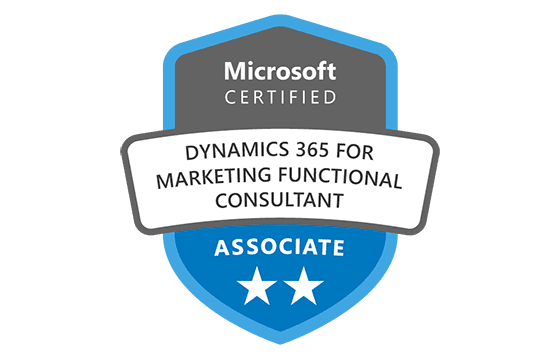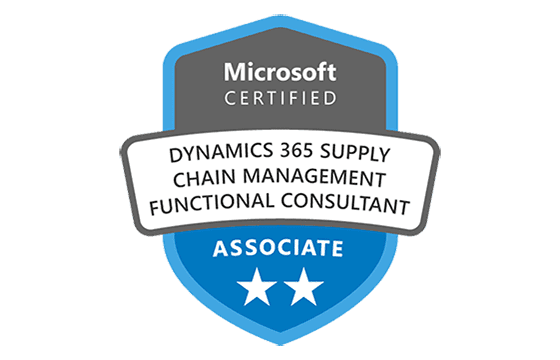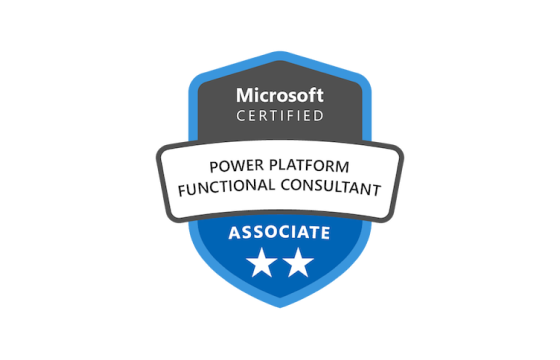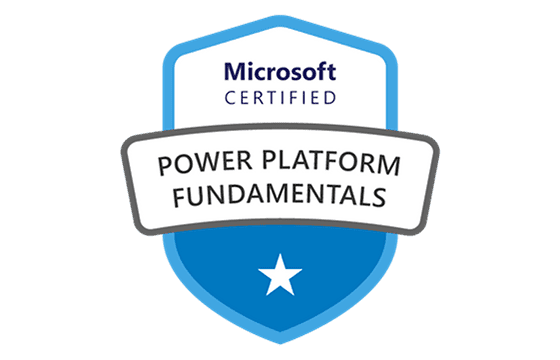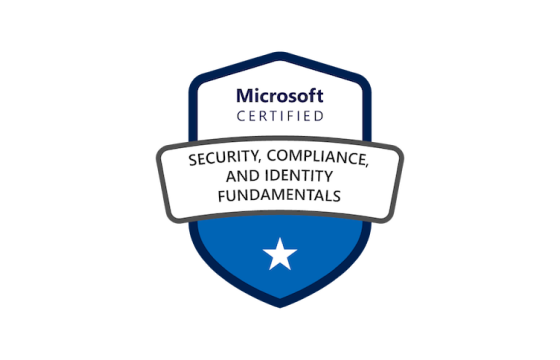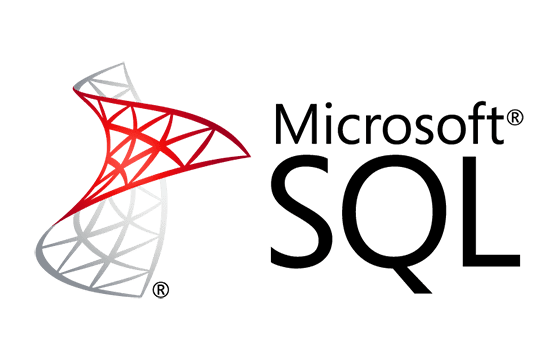Pass Your Microsoft Certified: Dynamics 365 Marketing Functional Consultant Associate Certification Easy!
Microsoft Certified: Dynamics 365 Marketing Functional Consultant Associate Certification Exams Questions & Answers, Accurate & Verified By IT Experts
Instant Download, Free Fast Updates, 99.6% Pass Rate.

Microsoft Dynamics 365 Customer Insights (Journeys) Functional Consultant
Includes 337 Questions & Answers
$44.99
Microsoft Certified: Dynamics 365 Marketing Functional Consultant Associate Certification Exams Screenshots
Download Free Microsoft Certified: Dynamics 365 Marketing Functional Consultant Associate Practice Test Questions VCE Files
| Exam | Title | Files |
|---|---|---|
Exam MB-220 |
Title Microsoft Dynamics 365 Customer Insights (Journeys) Functional Consultant |
Files 7 |
Exam PL-200 |
Title Microsoft Power Platform Functional Consultant |
Files 5 |
Microsoft Certified: Dynamics 365 Marketing Functional Consultant Associate Certification Exam Dumps & Practice Test Questions
Prepare with top-notch Microsoft Certified: Dynamics 365 Marketing Functional Consultant Associate certification practice test questions and answers, vce exam dumps, study guide, video training course from ExamCollection. All Microsoft Certified: Dynamics 365 Marketing Functional Consultant Associate certification exam dumps & practice test questions and answers are uploaded by users who have passed the exam themselves and formatted them into vce file format.
The Ultimate Guide to Microsoft Dynamics 365 Marketing Certification and Best Practices
In today’s digital-first business environment, marketing has evolved far beyond simple advertising or promotions. Companies are now tasked with creating meaningful customer experiences across multiple channels, ensuring that every interaction adds value and drives engagement. This shift has made marketing automation, data-driven strategies, and personalized customer journeys critical for success. Microsoft Dynamics 365 Marketing is designed to meet these demands by offering a robust platform that unifies marketing processes, streamlines operations, and enhances customer engagement.
Dynamics 365 Marketing integrates seamlessly with other Dynamics 365 modules, such as Sales and Customer Service, providing a complete view of customer interactions across the entire business ecosystem. Its cloud-based architecture ensures flexibility, scalability, and accessibility, allowing organizations to execute campaigns efficiently while tracking results in real-time. For professionals seeking to specialize in marketing technology, understanding this platform is essential.
The Microsoft Certified: Dynamics 365 Marketing Functional Consultant Associate certification validates the skills required to implement and manage marketing solutions using Dynamics 365 Marketing. It ensures that consultants can translate marketing objectives into practical solutions and deliver measurable results for their organizations.
Understanding the Role of a Marketing Functional Consultant
A Dynamics 365 Marketing Functional Consultant is responsible for bridging the gap between business marketing strategies and technological execution. The role demands a combination of marketing expertise, technical knowledge, and strategic problem-solving. Consultants work closely with business stakeholders to understand requirements, implement solutions, and optimize marketing processes.
Key responsibilities include translating marketing goals into system configurations, automating workflows, managing leads, creating customer journeys, and analyzing campaign performance. The consultant also collaborates with sales teams, IT, and other departments to ensure that marketing initiatives align with broader organizational objectives. Unlike traditional marketing roles, the impact of a functional consultant is directly measurable through improved process efficiency, higher lead conversion rates, and better campaign outcomes.
Core Capabilities of Dynamics 365 Marketing
To succeed as a Dynamics 365 Marketing Functional Consultant, it is important to understand the platform’s core capabilities. These features empower organizations to design and execute effective marketing campaigns while providing consultants the tools they need to deliver value.
Marketing Automation
Marketing automation is one of the platform’s strongest capabilities. It allows organizations to automate repetitive tasks, including sending emails, following up with leads, and managing campaign schedules. Automation reduces manual effort, ensures consistency, and frees marketing teams to focus on strategic initiatives. Consultants configure automated workflows to guide prospects through the marketing funnel, improving engagement and conversion rates.
Customer Journey Management
Customer journeys in Dynamics 365 Marketing allow organizations to design personalized experiences based on customer behavior, preferences, and interactions. Consultants can map out multi-stage journeys that include emails, landing pages, events, and other touchpoints. By monitoring engagement and adjusting journeys dynamically, businesses can provide relevant content at the right time, improving customer satisfaction and loyalty.
Lead Management
Effective lead management is critical for converting prospects into customers. Dynamics 365 Marketing provides tools to capture leads from various sources, qualify them based on engagement, and assign them to sales teams. Consultants can set up lead scoring models, automate lead nurturing, and track progression through the sales funnel, ensuring that high-potential leads receive focused attention.
Event Management
Managing events, whether online webinars or in-person conferences, is simplified through Dynamics 365 Marketing. Consultants can configure event registration forms, manage attendance, send reminders, and analyze post-event engagement. Integrating event data into marketing campaigns allows organizations to refine strategies and measure ROI more accurately.
Marketing Analytics and Reporting
Data-driven decision-making is a cornerstone of modern marketing. Dynamics 365 Marketing offers dashboards and analytics tools that provide insights into campaign performance, customer engagement, lead conversion, and overall marketing ROI. Consultants leverage these insights to refine strategies, allocate resources effectively, and demonstrate the business impact of marketing initiatives.
Exam Overview for MB-220
The Microsoft Certified: Dynamics 365 Marketing Functional Consultant Associate certification is earned by passing the MB-220 exam. This exam tests a candidate’s ability to implement and manage marketing solutions using Dynamics 365 Marketing effectively.
The exam consists of scenario-based questions, multiple-choice questions, and practical exercises that assess real-world skills. Candidates are expected to demonstrate knowledge in configuring marketing applications, designing customer journeys, managing leads, implementing marketing forms and pages, and analyzing campaign performance.
While there are no mandatory prerequisites, candidates with experience in Dynamics 365 fundamentals, CRM systems, and marketing processes are better positioned to succeed. Hands-on practice is crucial for mastering the platform’s features and passing the exam confidently.
Essential Skills for a Functional Consultant
A successful Dynamics 365 Marketing Functional Consultant combines technical expertise with strong marketing knowledge and interpersonal skills. Key skills include:
Analytical thinking to interpret data and optimize campaigns
Problem-solving for troubleshooting workflow and integration issues
Marketing knowledge to understand segmentation, targeting, and personalization strategies
Collaboration and communication to work effectively with cross-functional teams
Technical skills to configure Dynamics 365 Marketing applications and integrate them with other modules
These skills enable consultants to deliver solutions that align with business goals, improve marketing performance, and drive measurable results.
Career Opportunities and Benefits
Certification opens doors to diverse career opportunities in both consulting and corporate environments. Professionals can pursue roles such as Dynamics 365 Marketing Functional Consultant, CRM Specialist, Marketing Automation Expert, Customer Engagement Analyst, or Marketing Operations Manager.
Organizations increasingly require consultants who can bridge the gap between marketing strategy and technology. Certified professionals are recognized for their ability to implement solutions that enhance customer engagement, streamline operations, and improve campaign effectiveness. This recognition translates into career growth, higher employability, and competitive compensation.
Preparing for the Certification
Proper preparation is key to success in the MB-220 exam and beyond. A structured learning approach involves a combination of theoretical knowledge, practical experience, and continuous assessment.
Microsoft Learn provides official learning paths covering all aspects of Dynamics 365 Marketing, from basic configuration to advanced automation techniques.
Instructor-led training offers hands-on experience and guided exercises that simulate real-world marketing scenarios.
Practice exams familiarize candidates with the exam format, question types, and time management strategies.
Implementing campaigns, automations, and customer journeys in sandbox environments reinforces practical skills and prepares candidates for workplace challenges.
Effective preparation not only ensures exam success but also equips professionals to apply Dynamics 365 Marketing knowledge effectively in real-world settings.
Integrating Marketing with Sales and Customer Service
One of the advantages of Dynamics 365 Marketing is its seamless integration with other Dynamics 365 modules. Functional consultants must understand how marketing efforts impact sales and customer service operations. By aligning marketing campaigns with sales pipelines, organizations can ensure that leads are nurtured efficiently and that sales teams receive high-quality prospects. Integration with customer service allows marketing teams to use insights from service interactions to refine messaging, personalize campaigns, and enhance overall customer experience.
Leveraging Personalization and AI Capabilities
Modern marketing emphasizes personalization, and Dynamics 365 Marketing provides tools to deliver tailored experiences. Consultants can leverage customer data, behavior patterns, and segmentation to create personalized emails, offers, and journey experiences. Additionally, artificial intelligence capabilities in Dynamics 365 Marketing enable predictive lead scoring, campaign recommendations, and engagement insights. These features empower consultants to design strategies that anticipate customer needs and maximize engagement.
Importance of Compliance and Data Management
With increased regulations around data privacy, such as GDPR and CCPA, consultants must ensure that marketing processes comply with legal requirements. Dynamics 365 Marketing offers features for consent management, secure data handling, and transparent customer communications. Functional consultants are responsible for configuring these features, managing data accurately, and ensuring that campaigns respect privacy and compliance standards.
The Microsoft Certified: Dynamics 365 Marketing Functional Consultant Associate certification is a strategic credential for professionals aiming to excel in marketing technology. By mastering Dynamics 365 Marketing, consultants can design efficient campaigns, automate processes, nurture leads, and provide actionable insights that drive business growth.
This certification not only validates technical proficiency but also demonstrates a consultant’s ability to connect marketing strategies with measurable outcomes. Organizations benefit from professionals who can optimize customer journeys, enhance engagement, and improve marketing ROI. For individuals, achieving this certification opens doors to advanced roles, career growth, and recognition as a specialist in one of the most in-demand areas of business technology today.
Advanced Campaign Management in Dynamics 365 Marketing
Effective marketing requires more than just basic communication—it demands strategic planning, precise execution, and continuous optimization. Dynamics 365 Marketing provides tools for designing sophisticated campaigns that reach the right audience at the right time. A Marketing Functional Consultant plays a key role in ensuring that campaigns are structured for maximum impact.
Advanced campaign management starts with understanding the organization’s marketing objectives. Whether the goal is to generate leads, nurture existing customers, or increase brand awareness, campaigns must be designed with measurable outcomes in mind. Consultants leverage Dynamics 365 Marketing’s campaign templates, segmentation tools, and automation features to build campaigns that align with these objectives.
Designing Targeted Campaigns
Segmentation is at the heart of targeted marketing. Dynamics 365 Marketing allows consultants to segment audiences based on demographics, behavior, past interactions, or engagement history. By defining precise segments, campaigns can deliver personalized messages that resonate with recipients.
Campaign design involves mapping each segment to specific communication strategies. For example, high-value leads might receive personalized emails and invitations to exclusive events, while new prospects could be nurtured through automated welcome journeys. Consultants ensure that each segment receives appropriate messaging, avoiding generic or irrelevant content.
Automating Multi-Channel Campaigns
Multi-channel campaigns are essential for reaching customers wherever they are most active. Dynamics 365 Marketing enables automation across email, social media, landing pages, and events. Consultants configure workflows that trigger messages based on user actions, such as website visits, form submissions, or engagement with previous campaigns.
Automation ensures consistent communication and saves time for marketing teams. For instance, a lead who downloads a whitepaper can automatically receive a follow-up email with related resources. Similarly, event registrants can receive reminders, confirmations, and post-event surveys without manual intervention. These automated workflows improve engagement and enhance the overall customer experience.
Customer Journey Design
Customer journeys are structured paths that guide prospects from initial awareness to conversion and beyond. Designing effective journeys requires understanding customer behavior and anticipating their needs at each stage. Dynamics 365 Marketing provides a visual designer for mapping out these journeys, making it easier for consultants to plan and implement strategies.
A typical customer journey might begin with an email introducing a product or service, followed by targeted content based on engagement. Leads who interact positively could be guided toward product demos or consultations, while less engaged contacts may receive nurturing content to encourage further interaction. Consultants monitor each journey’s performance and adjust steps dynamically to optimize results.
Lead Management and Scoring
Generating leads is only the first step; effectively managing them is critical to achieving sales and marketing goals. Dynamics 365 Marketing offers tools for capturing leads from multiple sources, including web forms, social media, and events. Once captured, leads are scored based on criteria such as engagement, demographic fit, and behavior.
Lead scoring allows consultants to prioritize high-potential prospects for immediate follow-up by sales teams. Automated workflows can also nurture lower-scoring leads, gradually increasing engagement and readiness to convert. By implementing lead scoring models and monitoring lead progression, consultants ensure that the organization maximizes the value of each marketing interaction.
Event Management and Engagement
Events are powerful tools for building relationships and generating leads. Dynamics 365 Marketing provides comprehensive features for event planning, execution, and analysis. Consultants can configure registration pages, manage attendee communications, and track participation metrics.
Integrating event data into broader campaigns ensures that marketing efforts are cohesive. For instance, event attendees can be added to targeted follow-up journeys, while engagement metrics help refine future event strategies. Functional consultants ensure that events contribute to both lead generation and brand engagement objectives.
Marketing Forms and Landing Pages
Capturing leads and collecting data requires well-designed forms and landing pages. Dynamics 365 Marketing allows consultants to create customizable forms that align with campaign goals. Forms can be embedded on websites or used within email campaigns, capturing essential information for lead qualification and segmentation.
Landing pages are optimized to provide a seamless user experience. Consultants design pages that match campaign messaging, encourage desired actions, and integrate seamlessly with Dynamics 365 Marketing workflows. By combining forms and landing pages effectively, consultants enhance lead capture and improve conversion rates.
Analytics and Campaign Optimization
Data analysis is crucial for understanding campaign effectiveness and informing future strategies. Dynamics 365 Marketing offers dashboards and reporting tools that track metrics such as email open rates, click-through rates, event registrations, and lead conversions.
Consultants use these insights to identify which campaigns are performing well and which require adjustment. For example, low engagement in a particular segment may indicate the need for revised messaging or alternative content formats. Continuous optimization ensures that marketing efforts remain relevant and effective, driving measurable business outcomes.
Integration with Sales and Customer Service
Marketing campaigns do not operate in isolation; they are part of a larger business ecosystem. Dynamics 365 Marketing integrates with Sales and Customer Service modules, allowing consultants to align campaigns with the organization’s broader objectives.
Integration ensures that leads are transferred seamlessly to sales teams, providing them with context and engagement history. Customer Service integration allows marketing teams to use service insights to personalize campaigns further. This alignment improves efficiency, enhances customer experience, and increases the likelihood of conversion.
Personalization and AI Capabilities
Personalization is a key driver of engagement. Dynamics 365 Marketing provides tools for creating tailored experiences based on customer preferences, behavior, and lifecycle stage. Consultants can configure automated messaging, dynamic content, and personalized offers that resonate with each segment.
Artificial intelligence features, such as predictive lead scoring and campaign recommendations, enable consultants to make data-driven decisions. AI helps identify trends, predict outcomes, and optimize customer journeys, enhancing the overall effectiveness of marketing strategies.
Compliance and Data Management
Data privacy and regulatory compliance are critical in modern marketing. Consultants must ensure that campaigns adhere to regulations such as GDPR and CCPA. Dynamics 365 Marketing provides features for managing consent, securely handling customer data, and maintaining transparency in communications.
Functional consultants configure these features to ensure compliance while maximizing the value of collected data. Proper data management practices also improve segmentation accuracy, campaign targeting, and reporting reliability.
Real-World Implementation Strategies
Implementing advanced marketing campaigns requires a combination of strategy, technical expertise, and practical experience. Consultants often start by mapping business objectives to Dynamics 365 Marketing capabilities. They identify target segments, define customer journeys, and establish KPIs to measure success.
Hands-on implementation involves configuring workflows, setting up forms and landing pages, integrating with other modules, and monitoring campaign performance. Functional consultants continuously review metrics, adjust strategies, and ensure that campaigns deliver tangible results aligned with business goals.
Continuous Learning and Professional Development
The marketing technology landscape evolves rapidly, and consultants must stay updated on the latest features, best practices, and industry trends. Microsoft Learn, community forums, webinars, and workshops provide opportunities for continuous learning.
Engaging in professional development ensures that consultants remain effective in designing innovative campaigns, leveraging new automation tools, and applying AI insights. Staying informed also enhances career prospects, positioning certified professionals as experts in the field of marketing technology.
Advanced campaign management and customer journey design are essential for modern marketing success. Dynamics 365 Marketing equips organizations with the tools to automate campaigns, capture and nurture leads, and deliver personalized experiences across multiple channels.
Marketing Functional Consultants play a critical role in implementing these capabilities, aligning campaigns with business objectives, and ensuring measurable outcomes. By leveraging automation, analytics, AI, and integration with Sales and Customer Service, consultants create marketing strategies that drive engagement, conversion, and customer loyalty.
Certification as a Dynamics 365 Marketing Functional Consultant Associate validates these skills, providing recognition and career growth opportunities. Professionals who master advanced campaign management and customer journey design are well-positioned to contribute significantly to organizational success and remain competitive in the evolving marketing technology landscape.
Lead Scoring and Qualification Strategies
In marketing, generating leads is just the first step. The real challenge lies in identifying which leads are most likely to convert and directing resources accordingly. Dynamics 365 Marketing provides sophisticated tools for lead scoring and qualification, helping organizations prioritize high-potential prospects efficiently.
Lead scoring involves assigning values to prospects based on behavior, demographics, and engagement history. For example, a prospect who downloads a whitepaper, attends a webinar, or frequently visits the website may receive a higher score than someone with minimal interaction. Functional consultants configure scoring models in Dynamics 365 Marketing, defining thresholds that determine when a lead is ready for sales follow-up.
Effective lead qualification ensures that sales teams focus on leads with the highest likelihood of conversion. By combining automated lead scoring with human oversight, organizations can balance efficiency with accuracy, improving overall conversion rates. Consultants also set up nurturing campaigns for lower-scoring leads to gradually increase engagement over time.
Segmentation Strategies for Effective Marketing
Segmentation is a cornerstone of personalized marketing. Dynamics 365 Marketing enables consultants to create highly targeted segments based on demographics, behavior, engagement patterns, and customer lifecycle stage. Precise segmentation ensures that campaigns deliver relevant messages to the right audience, increasing the chances of engagement and conversion.
Dynamic segments automatically update as new data becomes available, ensuring that messaging remains accurate and timely. Consultants can also create static segments for specific campaigns or events. For instance, a product launch may target a static group of existing customers, while a nurturing campaign might leverage dynamic segments to capture new leads based on their recent interactions.
By leveraging segmentation, consultants can implement multi-tiered marketing strategies, ensuring that every contact receives messaging appropriate to their stage in the customer journey. This approach improves customer experience, increases engagement, and maximizes ROI.
Event Marketing and Management
Events remain one of the most effective methods for engaging prospects and building relationships. Dynamics 365 Marketing provides comprehensive tools to plan, execute, and analyze events, whether they are online webinars, in-person conferences, or hybrid formats.
Functional consultants are responsible for configuring registration forms, managing communications, tracking attendance, and analyzing post-event metrics. Automated workflows can send reminders, confirmations, and follow-up surveys to attendees, ensuring a seamless experience.
Integration of event data with other marketing campaigns allows organizations to capitalize on insights gained from attendee behavior. For example, individuals who participate actively in webinars can be moved into nurturing campaigns or targeted for sales engagement. This approach ensures that events not only engage prospects but also contribute meaningfully to lead generation and customer retention strategies.
Marketing Forms and Landing Page Optimization
Capturing accurate data is crucial for successful marketing campaigns. Dynamics 365 Marketing provides tools to create customizable forms and landing pages that align with campaign objectives. Consultants design forms to capture essential information without creating friction for the user, enhancing both completion rates and data quality.
Landing pages must be optimized for clarity, usability, and responsiveness. Consultants ensure that content, visuals, and calls-to-action align with campaign goals, guiding visitors toward desired actions. Proper integration of forms and landing pages with automated workflows allows leads to be nurtured immediately based on their interactions, improving conversion efficiency.
Integrating Marketing with Sales Processes
Marketing and sales alignment is essential for maximizing business outcomes. Dynamics 365 Marketing seamlessly integrates with the Sales module, allowing functional consultants to ensure that leads are handed off efficiently with complete engagement history.
Sales teams benefit from detailed insights into lead behavior, such as email opens, content downloads, and event participation. This information enables sales representatives to personalize their outreach, improving the likelihood of conversion. Additionally, integration allows marketing to track the effectiveness of campaigns in driving revenue, creating a feedback loop that informs strategy optimization.
Customer Journey Analytics
Understanding how prospects and customers interact with marketing campaigns is crucial for continuous improvement. Dynamics 365 Marketing offers robust analytics capabilities that allow functional consultants to monitor engagement at every stage of the customer journey.
Analytics dashboards track metrics such as email open rates, click-through rates, event registrations, and form completions. Consultants analyze this data to identify trends, measure performance against KPIs, and determine areas for improvement. By leveraging analytics, organizations can optimize campaigns, refine customer journeys, and achieve better results over time.
Personalization Techniques and Dynamic Content
Personalization is a critical driver of engagement and loyalty. Dynamics 365 Marketing allows consultants to deliver tailored content based on customer data, behavior, and preferences. Dynamic content blocks in emails, landing pages, and forms enable marketers to show different messaging to different segments without creating separate campaigns.
For example, high-value customers may receive exclusive offers, while new prospects are nurtured with introductory content. Consultants can also use AI-driven insights to predict customer needs, recommend products, or trigger personalized workflows, enhancing both engagement and conversion rates.
Automation of Lead Nurturing
Lead nurturing is essential for guiding prospects through the sales funnel. Dynamics 365 Marketing provides tools to automate nurturing campaigns based on engagement signals and lead scoring. Consultants set up workflows that send targeted emails, offer relevant resources, and schedule follow-up actions automatically.
Automation ensures timely communication and reduces manual effort, while maintaining a personalized experience for each lead. By combining segmentation, lead scoring, and automation, consultants can create highly efficient campaigns that convert prospects into loyal customers.
Compliance, Privacy, and Data Governance
Data privacy and compliance are integral to modern marketing. Dynamics 365 Marketing includes features for managing consent, adhering to regulations such as GDPR, and securely handling customer data. Functional consultants are responsible for configuring these features, ensuring that campaigns respect privacy regulations while maintaining high-quality data.
Proper data governance also improves segmentation accuracy, enhances reporting reliability, and builds trust with customers. Consultants must remain vigilant about changes in regulatory requirements, ensuring that marketing practices evolve alongside legislation.
Campaign Testing and Optimization
Effective marketing requires continuous testing and optimization. Dynamics 365 Marketing enables consultants to perform A/B testing on emails, landing pages, and workflows to determine which approaches yield the best results.
Consultants analyze metrics such as open rates, click-through rates, and conversion rates to identify the most effective content, messaging, and timing. Optimization is an ongoing process, and functional consultants use insights from testing to refine campaigns, improve customer engagement, and maximize return on marketing investment.
Advanced Reporting and Insights
Beyond basic metrics, Dynamics 365 Marketing provides advanced reporting capabilities that allow organizations to understand the effectiveness of their marketing strategies comprehensively. Consultants can generate detailed reports on customer journeys, segment performance, lead progression, and campaign ROI.
These insights help decision-makers allocate resources effectively, identify high-performing strategies, and adjust underperforming campaigns. Advanced reporting also provides evidence of marketing impact, which is crucial for justifying investments and demonstrating business value.
Collaboration with Cross-Functional Teams
Successful marketing initiatives require collaboration with multiple departments, including sales, IT, customer service, and executive leadership. Functional consultants act as liaisons, ensuring that campaigns align with organizational objectives and technical capabilities.
Collaboration includes sharing insights from analytics, coordinating on customer engagement strategies, integrating systems, and supporting data-driven decision-making. By fostering cross-functional alignment, consultants ensure that marketing efforts are cohesive, effective, and measurable.
Leveraging AI for Marketing Decisions
Artificial intelligence is becoming increasingly important in marketing strategy. Dynamics 365 Marketing provides AI capabilities for predictive lead scoring, engagement forecasting, and content recommendations.
Functional consultants use AI to identify trends, anticipate customer needs, and optimize campaign strategies. AI-driven insights enable consultants to make informed decisions, enhance personalization, and improve overall campaign performance, giving organizations a competitive edge in their marketing efforts.
Lead scoring, segmentation, event marketing, and automation are essential components of advanced marketing strategy. Dynamics 365 Marketing equips consultants with the tools necessary to implement these strategies efficiently and effectively.
Marketing Functional Consultants are responsible for designing customer journeys, nurturing leads, integrating campaigns with sales processes, and continuously optimizing performance through analytics and AI insights. Certification in Dynamics 365 Marketing validates these skills, positioning professionals as experts capable of delivering measurable business outcomes.
Organizations that leverage the expertise of certified consultants can enhance customer engagement, improve conversion rates, and maximize the return on marketing investments. For professionals, mastering lead management, segmentation, event marketing, and advanced automation ensures career growth and recognition in the rapidly evolving field of marketing technology.
Integrating Dynamics 365 Marketing with Other Systems
Integration is a critical component of modern marketing strategy. Marketing efforts do not exist in isolation; they must work seamlessly with sales, customer service, and external applications to maximize effectiveness. Dynamics 365 Marketing provides multiple integration options that allow functional consultants to connect marketing processes with broader business operations.
Integrating marketing with the Dynamics 365 Sales module ensures that leads are handed off smoothly, complete with engagement history and scoring data. This integration provides sales teams with actionable insights, enabling them to prioritize high-value prospects and personalize outreach. Similarly, integrating with Dynamics 365 Customer Service allows marketing campaigns to leverage service data, tailoring messaging based on customer interactions, support history, and satisfaction metrics.
Consultants must also manage integrations with third-party systems such as email platforms, social media tools, CRM extensions, and analytics software. By creating a cohesive ecosystem, consultants enable organizations to deliver consistent customer experiences and gain comprehensive insights across all channels.
Real-World Implementation Strategies
Implementing Dynamics 365 Marketing successfully requires a methodical approach. Functional consultants begin by understanding business objectives, target audiences, and existing processes. They then map these requirements to the capabilities of the platform, designing campaigns, customer journeys, and workflows that align with organizational goals.
A structured approach to implementation often includes:
Conducting stakeholder interviews to gather requirements
Documenting current processes and identifying gaps
Configuring the system to support marketing objectives
Designing customer journeys, forms, and landing pages
Setting up automated workflows and lead scoring models
Testing campaigns and journeys in a sandbox environment
Monitoring and analyzing performance metrics post-launch
This approach ensures that campaigns are not only technically sound but also aligned with strategic objectives, delivering measurable value to the organization.
Campaign Performance Monitoring
Monitoring campaign performance is essential to ensure that marketing efforts are achieving desired outcomes. Dynamics 365 Marketing provides dashboards, reports, and analytics tools that track engagement metrics such as email open rates, click-through rates, form submissions, event attendance, and lead progression.
Functional consultants regularly review these metrics to identify trends, assess campaign effectiveness, and detect potential issues early. For example, low engagement in a particular email campaign may indicate the need to revise content, targeting, or timing. Continuous monitoring allows consultants to make data-driven adjustments that improve overall campaign performance and ROI.
Measuring Return on Marketing Investment
Marketing ROI is a critical metric for demonstrating the value of campaigns to organizational leadership. Dynamics 365 Marketing enables functional consultants to link marketing activities directly to sales outcomes, providing a clear picture of how campaigns impact revenue.
ROI measurement involves analyzing the cost of campaigns relative to generated leads, conversions, and closed deals. Consultants can create reports that demonstrate the effectiveness of individual campaigns, customer journeys, or segments. These insights help organizations allocate resources more effectively, optimize strategies, and justify marketing investments to stakeholders.
Advanced Customer Journey Strategies
Customer journey mapping is a central component of marketing success. Advanced journey strategies in Dynamics 365 Marketing involve creating multiple paths tailored to different segments, behaviors, and engagement levels.
Functional consultants design journeys that incorporate conditional logic, triggers, and automated responses. For example, a prospect who opens a marketing email may be directed to a product demonstration, while a less engaged contact may receive nurturing content to increase interaction. These advanced journeys ensure that every prospect receives a personalized experience, increasing the likelihood of conversion and long-term loyalty.
Event Marketing at Scale
Managing large-scale events requires careful planning and coordination. Dynamics 365 Marketing allows consultants to manage multiple events simultaneously, track attendee registration, send automated communications, and analyze post-event engagement.
Event marketing at scale also involves integrating event data with other campaigns and customer journeys. Attendees can be automatically added to follow-up campaigns, scored as leads, and assigned to sales teams. By connecting event insights with broader marketing initiatives, consultants ensure that events contribute meaningfully to overall business objectives.
Personalization and Dynamic Content Optimization
Personalization remains a key driver of engagement. Consultants can leverage Dynamics 365 Marketing to deliver dynamic content in emails, landing pages, and forms, tailoring messages based on customer preferences, behavior, and demographics.
Optimization involves continuous testing of content, subject lines, and calls-to-action. A/B testing allows consultants to identify what resonates with different segments, refining campaigns for maximum impact. By combining personalization with optimization, organizations can improve engagement rates, nurture leads more effectively, and increase conversions.
Leveraging Artificial Intelligence for Predictive Insights
Artificial intelligence features within Dynamics 365 Marketing provide predictive insights that guide decision-making. Functional consultants can use AI to forecast lead behavior, recommend campaign adjustments, and prioritize high-potential prospects.
Predictive lead scoring, for example, evaluates engagement patterns to determine which leads are most likely to convert. AI-driven campaign suggestions help consultants identify optimal content, timing, and channels for each segment. Leveraging these capabilities enhances campaign effectiveness, reduces manual effort, and supports data-driven marketing strategies.
Data Management and Compliance
Effective marketing depends on accurate, high-quality data. Functional consultants must ensure that customer data is managed responsibly and complies with regulations such as GDPR, CCPA, and other regional privacy laws.
Dynamics 365 Marketing includes tools for consent management, secure data storage, and tracking customer preferences. Consultants are responsible for configuring these tools, auditing data regularly, and implementing best practices for data governance. Proper data management not only ensures compliance but also enhances segmentation accuracy, reporting reliability, and overall campaign effectiveness.
Collaboration with Cross-Functional Teams
Marketing does not operate in isolation. Functional consultants work closely with sales, IT, customer service, and executive teams to ensure alignment and maximize results.
Collaboration involves sharing insights from analytics, coordinating campaigns with sales pipelines, integrating marketing and service data, and contributing to strategic planning. By fostering communication across teams, consultants ensure that marketing initiatives are cohesive, measurable, and aligned with broader business objectives.
Best Practices for Optimization
Continuous improvement is essential in modern marketing. Functional consultants implement best practices to optimize campaigns, including:
Regularly reviewing engagement metrics and KPIs
Testing email subject lines, content, and calls-to-action
Adjusting customer journeys based on behavior and results
Updating segmentation and dynamic content strategies
Leveraging AI insights to inform decisions
Ensuring integration across all relevant systems
These practices help organizations maintain high levels of engagement, improve conversion rates, and maximize the impact of marketing investments.
Professional Development and Learning
The field of marketing technology is constantly evolving. Functional consultants must stay updated on platform enhancements, emerging tools, and industry trends.
Continuous learning opportunities include Microsoft Learn modules, webinars, professional forums, and hands-on practice in sandbox environments. Staying current ensures that consultants can implement innovative strategies, leverage new features, and maintain competitive expertise in the Dynamics 365 Marketing ecosystem.
Case Studies and Real-World Examples
Understanding real-world applications of Dynamics 365 Marketing helps consultants translate knowledge into actionable strategies. Case studies highlight successful campaigns, demonstrating how automation, segmentation, customer journeys, and analytics can drive measurable business outcomes.
For example, an organization might implement a multi-stage nurturing campaign for new product launches, combining email marketing, events, and dynamic content. By tracking engagement, adjusting workflows, and scoring leads, the company can increase conversion rates and improve ROI. These examples provide valuable insights for consultants designing campaigns in their own organizations.
Integration, optimization, and data-driven strategies are essential for effective marketing in today’s competitive landscape. Dynamics 365 Marketing equips functional consultants with the tools to implement advanced campaigns, manage customer journeys, automate lead nurturing, and measure ROI.
By aligning marketing with sales and customer service, leveraging AI insights, ensuring compliance, and continuously refining strategies, consultants can deliver meaningful business outcomes. Certification as a Dynamics 365 Marketing Functional Consultant Associate validates these skills, demonstrating expertise in implementing modern marketing solutions.
Organizations benefit from consultants who can design personalized, automated, and measurable campaigns, enhancing customer engagement and driving growth. For professionals, mastering integration, optimization, and advanced analytics ensures career advancement, recognition, and a competitive edge in the marketing technology field.
Emerging Trends in Marketing Technology
Marketing technology is evolving at an unprecedented pace, and staying ahead requires awareness of emerging trends. Dynamics 365 Marketing equips functional consultants with the tools to leverage these trends effectively. Artificial intelligence, machine learning, predictive analytics, omnichannel engagement, and hyper-personalization are reshaping how organizations approach customer interaction.
AI-driven insights allow marketers to predict customer behavior, recommend content, and optimize campaigns dynamically. Predictive lead scoring helps sales and marketing teams prioritize high-value prospects. Omnichannel marketing ensures that customers receive consistent messaging across email, social media, events, and web platforms. Functional consultants play a key role in implementing these technologies, ensuring that organizations remain competitive and deliver meaningful customer experiences.
Strategic Planning with Dynamics 365 Marketing
Beyond execution, marketing strategy requires thoughtful planning. Functional consultants use Dynamics 365 Marketing to align marketing initiatives with organizational goals. This includes identifying target audiences, defining campaign objectives, mapping customer journeys, and setting key performance indicators.
Strategic planning also involves assessing resource allocation, budgeting for campaigns, and prioritizing high-impact initiatives. By using the platform’s analytics and reporting tools, consultants can forecast outcomes, monitor progress, and adjust strategies in real time. This ensures that marketing investments drive measurable business results and support long-term growth objectives.
Advanced Segmentation and Personalization
Advanced segmentation allows organizations to deliver highly targeted and personalized marketing experiences. Dynamics 365 Marketing enables functional consultants to create segments based on demographics, behavior, engagement history, and customer preferences.
Personalization strategies can include dynamic content in emails, customized landing pages, tailored event invitations, and individualized product recommendations. By delivering relevant content at the right time, consultants help organizations increase engagement, nurture leads effectively, and improve customer loyalty.
AI-Powered Campaign Optimization
Artificial intelligence is transforming marketing by providing predictive insights and automation capabilities. Dynamics 365 Marketing uses AI to recommend optimal campaign strategies, forecast engagement trends, and identify high-potential leads.
Functional consultants leverage AI to optimize customer journeys, adjust messaging dynamically, and predict which prospects are most likely to convert. These capabilities allow organizations to make data-driven decisions, improve campaign efficiency, and maximize return on marketing investment.
Enhancing Customer Engagement
Customer engagement is at the core of marketing success. Dynamics 365 Marketing provides tools to design interactions that are timely, relevant, and meaningful. Functional consultants focus on creating seamless experiences across all touchpoints, including email, social media, web forms, events, and customer service interactions.
Engagement metrics such as open rates, click-through rates, event participation, and form completions provide insights into customer preferences and behavior. Consultants use this data to refine campaigns, segment audiences more effectively, and deliver content that resonates with each customer.
Leveraging Marketing Automation
Marketing automation is essential for efficiency and consistency. Dynamics 365 Marketing allows consultants to automate workflows, nurture leads, schedule campaigns, and trigger actions based on customer behavior.
Automation reduces manual effort, ensures timely communication, and improves the customer experience. For example, automated follow-ups after form submissions, webinar attendance, or website visits can nurture prospects toward conversion without requiring constant manual oversight. Consultants design these workflows to align with customer journeys, improving efficiency and campaign effectiveness.
Data Management and Compliance
Proper data management is vital for accuracy, personalization, and regulatory compliance. Dynamics 365 Marketing provides tools to handle customer data securely, track consent, and adhere to regulations such as GDPR and CCPA.
Functional consultants ensure that data is clean, up-to-date, and compliant. They configure consent management settings, monitor data usage, and implement best practices for data governance. Accurate and compliant data enhances segmentation, personalization, reporting reliability, and ultimately, marketing effectiveness.
Measuring and Demonstrating ROI
Proving the value of marketing initiatives requires comprehensive ROI measurement. Dynamics 365 Marketing enables consultants to track campaign costs, lead generation, conversions, and revenue impact.
By linking marketing activities to sales outcomes, consultants provide organizations with actionable insights into campaign effectiveness. Advanced reporting tools allow visualization of customer journeys, segment performance, and conversion rates. Demonstrating ROI supports strategic decision-making, optimizes resource allocation, and justifies marketing investments.
Real-World Case Studies
Real-world examples illustrate how Dynamics 365 Marketing can drive tangible business results. Organizations using advanced customer journeys, predictive lead scoring, and multi-channel campaigns have achieved higher engagement rates, increased conversions, and improved customer satisfaction.
Functional consultants analyze these case studies to understand best practices, identify innovative strategies, and apply lessons learned to their own implementations. Studying real-world scenarios also prepares consultants for challenges they may encounter in practical deployments, enhancing problem-solving skills and implementation success.
Professional Development and Career Growth
The field of marketing technology is dynamic, requiring continuous learning and skill development. Functional consultants can advance their careers by staying current with platform updates, participating in professional communities, and pursuing additional certifications.
Continuous learning ensures that consultants can implement new features, leverage emerging technologies, and maintain expertise in campaign strategy, AI-driven marketing, and automation. Career growth opportunities include senior functional consultant roles, solution architect positions, marketing operations leadership, and consulting engagements with large enterprises.
Future-Proofing Marketing Skills
As technology evolves, functional consultants must future-proof their skills to remain relevant. Mastery of Dynamics 365 Marketing, AI capabilities, automation workflows, and integration strategies ensures consultants can adapt to changing business needs and market demands.
Staying informed about emerging trends such as omnichannel marketing, predictive analytics, and hyper-personalization allows consultants to implement cutting-edge solutions. Future-proof skills also include data management, compliance expertise, and the ability to translate business objectives into technology-driven marketing strategies.
Driving Strategic Business Growth
The ultimate goal of marketing initiatives is to support business growth. Dynamics 365 Marketing enables functional consultants to align campaigns, customer journeys, and analytics with organizational objectives.
Consultants help organizations identify high-value opportunities, optimize customer engagement, and generate measurable revenue impact. By leveraging the full capabilities of the platform, functional consultants contribute to strategic decision-making, improve customer experience, and drive sustainable growth.
Conclusion
Dynamics 365 Marketing is a powerful platform that empowers organizations to execute personalized, automated, and data-driven marketing strategies. Functional consultants play a critical role in designing campaigns, managing customer journeys, integrating with other systems, and analyzing performance metrics.
Emerging trends such as AI, predictive analytics, and omnichannel marketing are transforming the marketing landscape. Consultants who master these technologies and apply best practices in segmentation, personalization, automation, compliance, and ROI measurement are highly valuable to organizations seeking to maximize engagement and revenue.
Certification as a Dynamics 365 Marketing Functional Consultant Associate validates expertise in these areas, demonstrating the ability to implement effective, measurable marketing strategies. Professionals equipped with these skills can drive business growth, enhance customer experiences, and remain competitive in an ever-evolving marketing technology landscape.
Organizations benefit from consultants who can deliver seamless, personalized, and automated marketing initiatives, leveraging insights and analytics to optimize performance. By combining strategic planning, advanced technology, and practical implementation, certified functional consultants are positioned to lead marketing innovation and deliver measurable value across all customer touchpoints.
ExamCollection provides the complete prep materials in vce files format which include Microsoft Certified: Dynamics 365 Marketing Functional Consultant Associate certification exam dumps, practice test questions and answers, video training course and study guide which help the exam candidates to pass the exams quickly. Fast updates to Microsoft Certified: Dynamics 365 Marketing Functional Consultant Associate certification exam dumps, practice test questions and accurate answers vce verified by industry experts are taken from the latest pool of questions.
Microsoft Microsoft Certified: Dynamics 365 Marketing Functional Consultant Associate Video Courses

Top Microsoft Certification Exams
- AZ-104
- AI-900
- DP-700
- AI-102
- AZ-305
- PL-300
- MD-102
- AZ-900
- AZ-500
- SC-300
- SC-200
- MS-102
- SC-401
- AZ-204
- DP-600
- SC-100
- AZ-700
- PL-200
- AZ-400
- AZ-800
- AZ-140
- SC-900
- PL-400
- PL-600
- AZ-801
- MS-900
- DP-300
- MS-700
- MB-280
- GH-300
- PL-900
- MB-800
- MB-330
- MB-310
- DP-100
- DP-900
- MB-820
- MB-230
- MB-700
- MS-721
- GH-900
- GH-200
- MB-920
- MB-910
- PL-500
- MB-500
- MB-335
- GH-500
- DP-420
- MB-240
- GH-100
- AZ-120
- SC-400
- DP-203
- AZ-303
- MO-300
- MB-210
- 98-388
- MB-900
- 62-193
- 98-383
- MO-100
Site Search:












